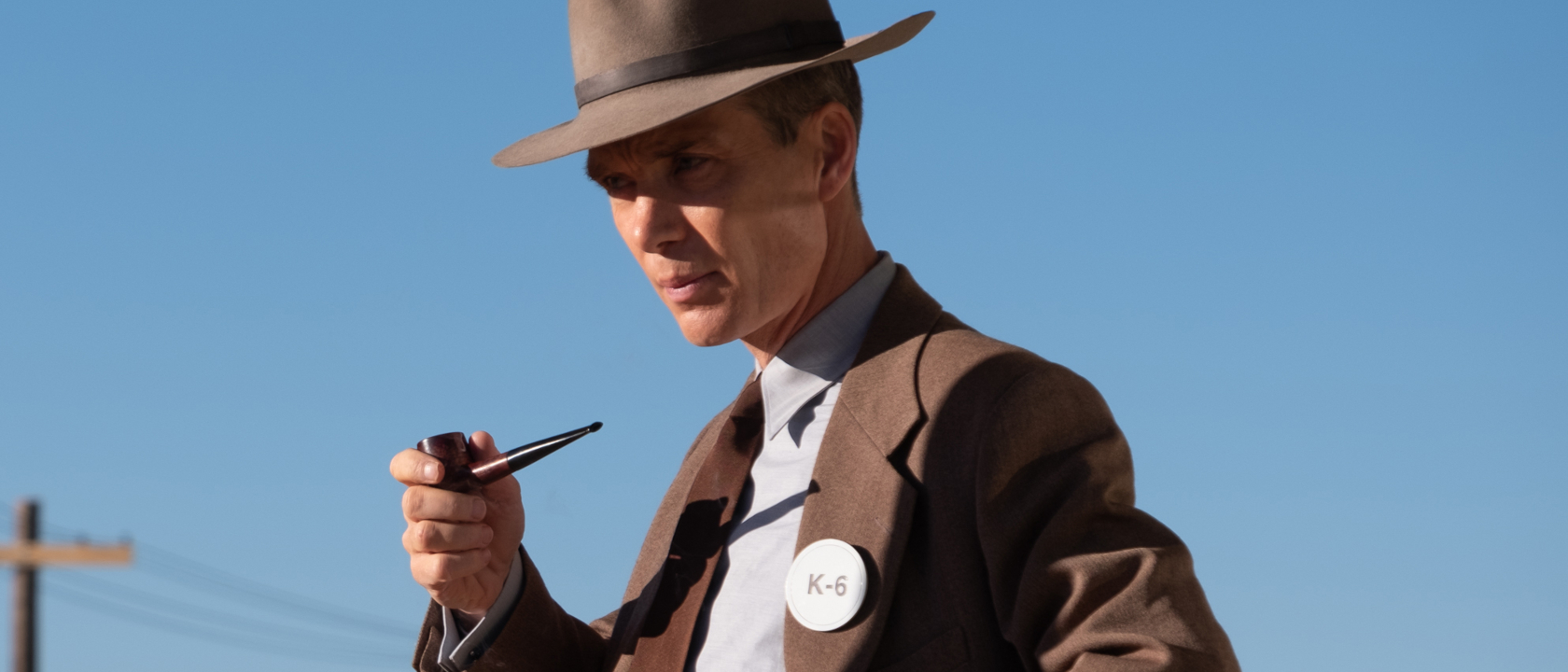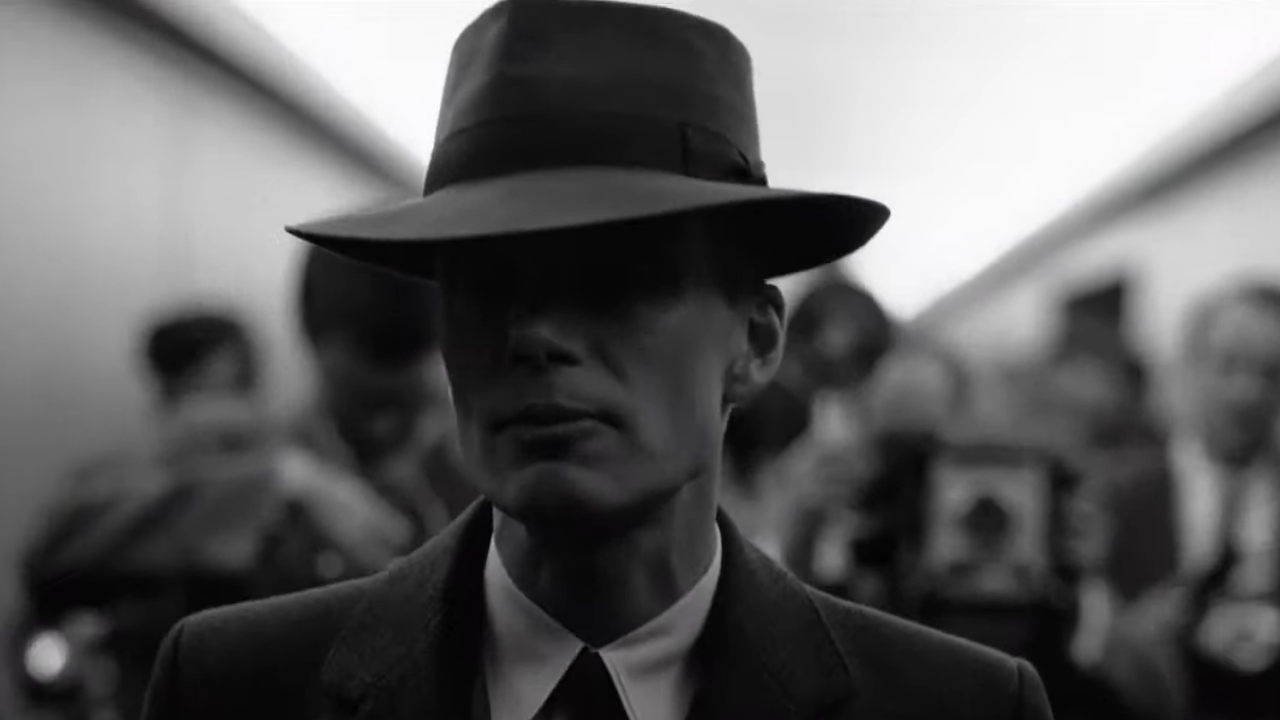
History isn’t always a subject for big ticket tentpole movies, and even when directors more familiar with explosions than textbooks try to engage such subject matter, the results can be rather shaky. At the same time, a writer/director like Christopher Nolan can truly make crucial moments in the fabric of our society come to life in such a manner that factual events can become something dazzling (and also frightening) to behold. The man did it before with his work on Dunkirk, and now with Oppenheimer Nolan has used the father of the atomic bomb to deliver an epic biopic that masterfully walks the line between entertaining spectacle and chilling historical reverence.

Release Date: July 21, 2023
Directed By: Christopher Nolan
Written By: Christopher Nolan
Starring: Cillian Murphy, Emily Blunt, Robert Downey, Jr., Matt Damon, Rami Malek, Florence Pugh, Benny Safdie, Michael Angarano, Josh Hartnett and Kenneth Branagh
Rating: R for some sexuality, nudity, and language.
Runtime: 180 minutes
Oppenheimer uses a very similar structure to Dunkirk, in that it tells a handful of different stories across time. One half details the academic and professional life of J. Robert Oppenheimer (Cillian Murphy), as he speeds towards the creation of the atomic bomb. On the other half of the story is Admiral Lewis Strauss (Robert Downey Jr.), a man who’s slogging through a senate confirmation hearing in the aftermath of The Manhattan Project. These stories weave in and out of each other’s orbit, shifting between color and black and white respectively, with Oppenheimer being the common thread.
As Christopher Nolan has proven time and again, non-linear storylines are of more interest to him than a straightforward narrative. And once again, the usage of such a narrative twist helps bring Oppenheimer to life in brilliant detail. Combining scientific and historical fact with his unique narrative flare, Nolan takes what could have been a flat, by the numbers historical drama and makes it an engaging epic.
Oppenheimer is a constantly engrossing intellectual horror film.
In a summer of blockbusters, the Tenet director has chosen to drop a metaphorical bomb on the competition, through a movie that feels more suited for awards season. But thanks to the consistently engrossing way that Oppenheimer engages its subject matter, the dawn of the atomic age kind of plays like an atypical blockbuster itself. There’s even a moment where Cillian Murphy’s J. Robert Oppenheimer dons his iconic look, pipe and all, that feels similar to a superhero first gearing up in a film like Batman Begins.
That observation isn’t meant to color Christopher Nolan’s picture as a superficial affair. Inspired by authors Kai Bird and Martin J. Sherwin’s American Prometheus: The Triumph and Tragedy of J. Robert Oppenheimer, this is very much a firm examination of Oppenheimer’s life and times. But instead of just showing Cillian Murphy’s journey from start to finish in traditional fashion, The Dark Knight director jumps between the pre and post atomic era time periods, showing both halves on a collision course with history. Infusing those happenings with momentum and style from the start, you feel like you're living history rather than just witnessing it.
It’s because of this that Oppenheimer operates as nothing short of an intellectual horror film. Even being fully aware of the historical events and consequences that came out of The Manhattan Project’s legacy, the tension and stakes feel as fresh as they would with a fictional narrative unfolding for the first time. Part of that is because of Christopher Nolan’s presentation, but another major component is the all-star cast brought on to dramatize Oppenheimer’s historical terror.
Cillian Murphy leads an all-star cast that never feels too showy or distracting.
The world knew that Oppenheimer was going to be a star studded affair, as the cast announced throughout the pre-release promotional blitz became too large to ignore. Upon actually seeing the movie, it’s even more pleasing to realize that that roster, including such heavy hitters as Robert Downey Jr., Emily Blunt, and Matt Damon, is even more impressive than you’d think. All of it is anchored by a tremendous performance by Cillian Murphy, who locks in this formula of amazing talent with such gravitas that it never feels like “stunt casting.”
Everyone in Oppenheimer’s stacked deck gets their “moment,” so if you see a familiar face with no lines in Act I, be patient. Lending to the paranoia that ensues throughout the film’s story, the audience never quite knows what to expect from even the most recognizable performers hidden within. But again, it’s Murphy’s J. Robert Oppenheimer that holds court, front and center, from start to finish.
While that’s a foregone conclusion, as he is after all playing the titular historical figure, this longtime member of the Christopher Nolan Repertory Company doesn’t play the part as such. Cillian Murphy sees all the facets of Oppenheimer, and is allowed to interact with each piece of his complicated protagonist properly.
There’s a great deal of respect for J. Robert Oppenheimer in this project, but Oppenheimer never seeks to merely cash in on the “troubled genius who saw the future” card. At times Robert is the life of the party and scientific genius of the day, and at other moments he’s a distant womanizer whose deeply troubled by the path he seems to be taking.
Further credit should be given to Robert Downey Jr., as his portrayal of Lewis Strauss is just as vital and compelling in the black and white narrative Oppenheimer uses as its counterbalance. It’s really hard to resist talking about the insanely phenomenal cast that’s been drafted by the Nolan machine this time out. But if there’s anyone else to single out when it comes to carrying the same narrative heft Murphy is lifting throughout, it’s Downey and his deliciously complex portrayal of a would-be politician who has to navigate his own association with Robert Oppenheimer in a very complex manner.
Christopher Nolan may have topped himself with Oppenheimer while also helping to reinvigorate historical dramas.
Historical and scientific dramas like Oppenheimer have built a reputation for being stuffy and flat, prone to being produced as awards bait films that get released towards the end of the year for such consideration. Though Christopher Nolan has been reported as superstitious about releasing his films in the same July timeframe, unleashing this captivating title in the middle of “blockbuster season” makes a lot of sense.
Oppenheimer isn’t merely trying to depict history, it also tries to get the audience to engage in its course. Following the invention of the atomic age, both in practice and in politics, Nolan and his cast are using existing history as a potent warning not to repeat it. With that aim, the iconic director joins the ranks of other films like Tetris that try to show the world the repercussions of pivot points future generations merely read about in textbooks. By treating history with a respectable level of event movie flare, the door is open for everyone to walk through and partake in stories that have previously seemed reserved to appeal directly to awards bodies and academics.
In experiencing Oppenheimer, the audience is invited to live the horrors of this cultural shift as if they were alive when it first happened. That method is not only narratively pleasing, but it also can be seen as a call to empathy and attention towards the fears we’ve seen turned into blockbuster fodder in the decades that followed the destructive power that Los Alamos project made a reality.
A studious examination of history, shown via a reverent lens of Hollywood spectacle, Oppenheimer is a chilling biopic that could be Christopher Nolan’s best picture yet. Depicting an event that was both marvelous in potential, yet horrific in its execution, it is ambiguous in how it morally examines its characters, while also being abundantly clear on how it stands on the matter of nuclear proliferation. It is nothing short of an epic cinematic triumph, and should be a movie heralded and dissected for decades to come.







